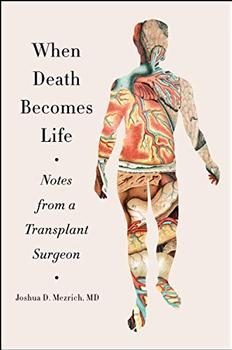Summary | Excerpt | Reviews | Beyond the book | Read-Alikes | Genres & Themes | Author Bio

Stories of Life, Death, and Brain Surgery
by Henry MarshBritish neurosurgeon Henry Marsh might already be familiar as the subject of the Emmy-winning documentary The English Surgeon, a 2007 film about his attempts to modernize brain surgery in Ukraine. He is also the senior consultant neurosurgeon at Atkinson Morley /St. George's Hospital in London, one of the UK's largest teaching hospitals. With the publication of this debut, Do No Harm: Stories of Life, Death and Brain Surgery, Marsh adds "author" to his impressive resume.
Marsh relays his experiences during the course of his long career, covering his decision to enter medical school, some of the more interesting surgeries he has performed, and his successes and failures along the way. The chapters are brief and not laid out chronologically, feeling more like a collection of anecdotes than a start-to-finish narrative with a beginning, middle and end; the stories range from purely informational to touching and scary to joyous. The format works especially well here, with the variety keeping the book moving along at a nice clip and maintaining readers' interest.
The author manages to strike just the right balance between the use of technical language and vernacular so that the prose conveys his medical expertise without losing readers in the jargon. His writing is also beautifully descriptive and clearly articulates his excitement for — and love of — the act of brain surgery even after decades of practice, and his first-person perspective adds a sense of immediacy to the narrative.
Armed now with two retractors I start to prise apart the frontal and temporal lobes, held together by the arachnoid. Cerebro-spinal fluid, known to doctors as CSF, as clear as liquid crystal, circulating through strands of the arachnoid, flashes and glistens like silver in the microscope's light. Through this I can see the smooth yellow surface of the brain itself, etched with minute red blood vessels – arterioles – which form beautiful branches like a river's tributaries seen from space. Glistening, dark purple veins run between the two lobes leading down towards the middle cerebral artery and, ultimately, to where I will find the aneurysm.
Marsh's incredible honesty is what makes this book truly stand out. He talks, for example, about how after his first surgeries he quickly "became hardened in the way that doctors have to become hardened and come to see patients as an entirely separate race from all-important, invulnerable young doctors like myself." He also understands how age and experience have changed him, later saying that "I am less frightened by failure – I have come to accept it and feel less threatened by it and hopefully have learned from the mistakes I made in the past. I can dare to be a little less detached."
Marsh is particularly candid in recounting times when he made mistakes, relaying one situation where his hubris permanently disabled a young cyclist, and another where he believes his anger at an encounter with an administrator just before surgery contributed to his severing a nerve that controls facial muscles. It is a bit frightening at times, to realize that the surgeons we place our faith in, are only human, subject to the same emotions and errors in judgment as the rest of us mere mortals.
The only real weak spot in the book is the author's relentless indictment of England's National Health Service. He frequently relays instances where he finds bureaucratic rules irksome and nonsensical, and complains of a constant shortage of beds resulting in overcrowding and a lack of privacy. He compares the modern day NHS care to private care in the United States, where insurance is mostly a consumer item, and consequently patients are treated as customers who must be pleased with the service as opposed to just another person to be processed. On one hand this information is timely for Americans as the United States makes its first forays into nationalized healthcare, but on the other the constant harping gets old after a while and the author loses his impact, coming across as curmudgeonly instead of authoritative.
This complaint aside, Do No Harm is a revealing look at the inner world of neuroscience and the doctors who perform this complicated surgery, as well as a fascinating self-portrait of an expert in this field. I would highly recommend it for readers who enjoy quality nonfiction in general and for those interested in the science and medicine genres in particular. Book groups too might find good discussions on topics such as decisions about medical care, insurance, and the role of medicine in our lives.
![]() This review was originally published in The BookBrowse Review in June 2015, and has been updated for the
June 2016 edition.
Click here to go to this issue.
This review was originally published in The BookBrowse Review in June 2015, and has been updated for the
June 2016 edition.
Click here to go to this issue.

If you liked Do No Harm, try these:

by Theodore H. Schwartz
Published 2024
A popular biography of brain surgery, by one of its preeminent practitioners.

by Joshua D. Mezrich
Published 2020
A gifted surgeon illuminates one of the most profound, awe-inspiring, and deeply affecting achievements of modern day medicine - the movement of organs between bodies - in this exceptional work of death and life.
Your guide toexceptional books
BookBrowse seeks out and recommends the best in contemporary fiction and nonfiction—books that not only engage and entertain but also deepen our understanding of ourselves and the world around us.